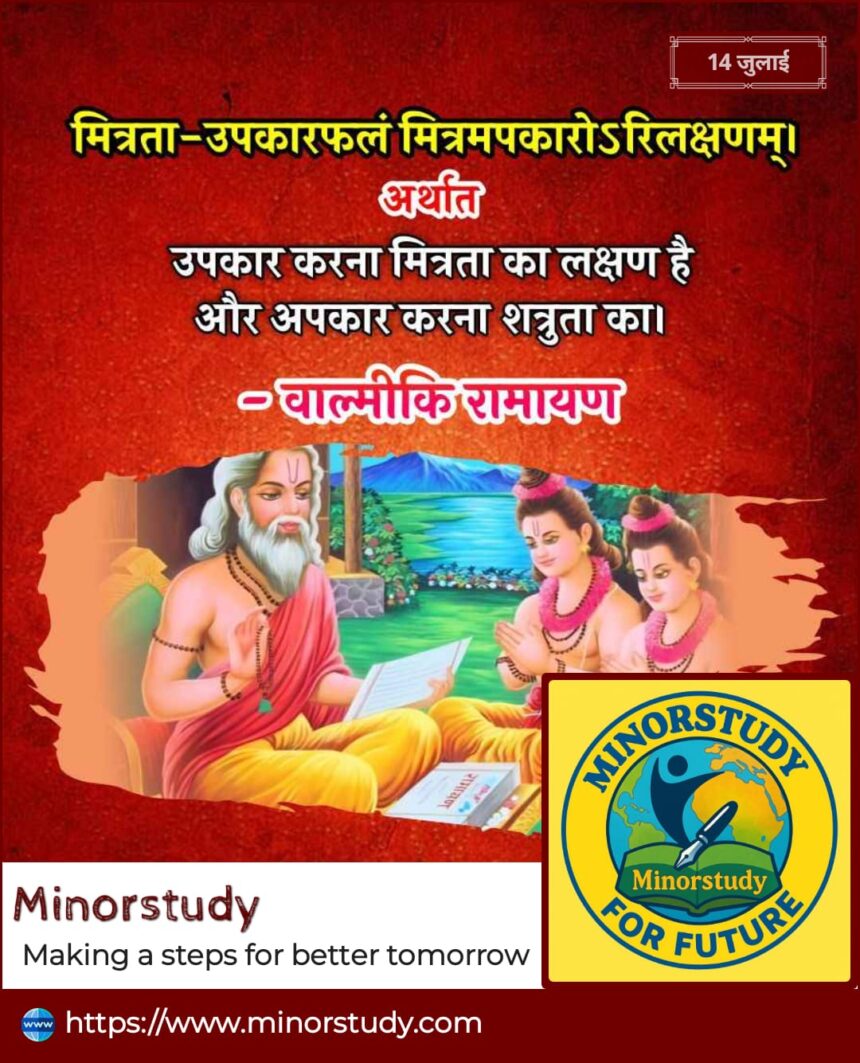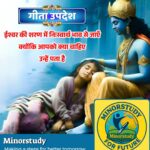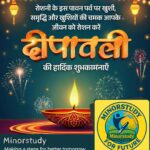🕊️ 7 Timeless Truths from Valmiki Ramayana About Friendship That Can Uplift Any Soul
In a world where relationships are becoming more transactional, the Valmiki Ramayana, one of the world’s most revered epics, offers eternal wisdom about genuine human bonds, especially friendship. The verse “Friendship-Upkarphalam Mitrampakaro’rilakshanam” is not just a poetic line — it’s a moral compass that has guided generations.
- 📜 Valmiki Ramayana – A Divine Epic
- 📌 Timeline: The Evolution of Ramayana Teachings
- 🔍 Verse Context and Meaning
- 💡 7 Timeless Truths from Valmiki Ramayana on Friendship
- 1. 🤝 True Friendship is Rooted in Righteousness
- 2. 🛡️ A Friend Protects Even at Personal Cost
- 3. 💬 Words Matter — Speak with Kindness
- 4. 🕊️ Forgiveness Strengthens Bonds
- 5. 🌳 Friendship is Action, Not Just Emotion
- 6. 🙅♂️ Enmity is Measured by Harm, Not Hate
- 7. 📿 Divine Friendships Lead to Spiritual Growth
- 🌟 Significance in Today’s Life
- 📚 Important Facts
- 📆 Observance and Cultural Impact
- 🙏 Heartfelt Wishing Message
- ❓ FAQs
- Q1. Who was Maharishi Valmiki?
- Q2. What is the core message of the verse on friendship?
- Q3. How can we apply this verse today?
- Q4. What was the greatest friendship in Ramayana?
- Q5. Is Ramayana only a religious text?
- 🧠 Conclusion: The Goodness of Friendship is its True Proof
Let’s dive deep into the history, context, importance, and real-life application of this verse, and rediscover why doing good for others is the truest sign of friendship.
📜 Valmiki Ramayana – A Divine Epic
| Aspect | Details |
|---|---|
| Authored by | Maharishi Valmiki |
| Language | Sanskrit |
| Era | Estimated between 500 BCE – 100 BCE |
| Structure | 7 Kandas (Books/Volumes) |
| Core Theme | Dharma (righteousness), Bhakti, Karma, and relationships |
The Ramayana is not just a story of Lord Rama — it’s a guide to ideal living, showcasing friendship, loyalty, truth, sacrifice, and devotion.
📌 Timeline: The Evolution of Ramayana Teachings
| Period | Event |
|---|---|
| 500 BCE | Composition of original Sanskrit Ramayana by Maharishi Valmiki |
| 400–200 BCE | Oral transmission and early recitations across Bharatvarsha |
| 3rd–6th CE | Translations into Pali, Tamil (Kamba Ramayanam), and other regional texts |
| 16th CE | Tulsidas Ji writes Ramcharitmanas in Awadhi |
| Present | Ramayana continues to be studied, enacted, and recited globally |
🔍 Verse Context and Meaning
Verse (Sanskrit):
“Friendship-Upkarphalam Mitrampakaro’rilakshanam”
Translation:
Doing good to a friend is the natural fruit of true friendship. Conversely, causing harm is a mark of enmity.
Context:
This teaching appears in the Kishkindha Kanda, where Lord Rama meets Hanuman, Sugriva, and the Vanara sena. Their bond, which began with mutual trust and noble action, became one of the most celebrated friendships in Indian lore.
💡 7 Timeless Truths from Valmiki Ramayana on Friendship
1. 🤝 True Friendship is Rooted in Righteousness
Ramayana teaches us that real friendship is not based on gain, but on mutual dharma (duty). Whether it is Rama-Sugriva, Rama-Hanuman, or Bharata-Rama, friendship blossoms through trust, ethics, and mutual respect.
2. 🛡️ A Friend Protects Even at Personal Cost
Hanuman Ji’s entire life is a tribute to sacrifice for a friend. He crosses oceans, faces demons, and even risks his life — all for Rama. This is a call to go beyond comfort for those we truly value.
3. 💬 Words Matter — Speak with Kindness
Even in challenging moments, Rama addresses everyone — friend or foe — with dignity and grace. A real friend never humiliates or belittles.
4. 🕊️ Forgiveness Strengthens Bonds
When Sugriva forgets his promise, Rama does not destroy their bond with anger. Instead, Lakshmana reminds him firmly but respectfully. Patience in friendship is a mark of greatness.
5. 🌳 Friendship is Action, Not Just Emotion
Just as trees give shade and fruits without expectations, a true friend contributes silently but powerfully. That’s why Valmiki equates doing good as the very fruit of friendship.
6. 🙅♂️ Enmity is Measured by Harm, Not Hate
Valmiki makes a profound point — a person who does harm, even passively, is not a friend. A friend who hurts is not a friend — no matter what label they carry.
7. 📿 Divine Friendships Lead to Spiritual Growth
The bond between Rama and Hanuman is not just emotional — it is spiritual. Real friendship uplifts both individuals toward higher ideals and self-realization.
🌟 Significance in Today’s Life
| Modern Situation | Ramayana’s Friendly Solution |
|---|---|
| Fake friendships | Observe who acts in your interest, not just speaks sweetly |
| Social isolation | Be a Hanuman to someone — offer support without judgment |
| Workplace rivalry | Stick to dharma, avoid gossip or sabotage |
| Broken bonds | Forgiveness and honest dialogue restore relationships |
| Trust issues | Earn trust by action, not by manipulation |
📚 Important Facts
Valmiki is known as the Adi-Kavi, the first poet of India.
Ramayana was among the first texts to moralize friendship and duty.
The Sanskrit term for friend in Ramayana — “Mitra” — signifies both affection and responsibility.
The Vanarasena symbolizes collective friendship — unity for dharma.
Valmiki’s friendship verse is still quoted in modern diplomacy and conflict resolution.
📆 Observance and Cultural Impact
Ramayana Month (Karkidakam) in Kerala: Daily readings promote ethical living.
Ramlila enactments during Dussehra teach virtues through dramatization.
Schools and universities include Ramayana verses in moral education.
Friendship Day messages often echo Ramayana ideals unknowingly!
🙏 Heartfelt Wishing Message
🌼 On this sacred journey of life, may you be blessed with true friends who uplift, support, and inspire you.
🌟 Let the wisdom of Valmiki Ramayana remind you to nurture and value such bonds with purity and gratitude.
🕊️ May your actions always reflect the fruit of friendship — selfless goodness.
❓ FAQs
Q1. Who was Maharishi Valmiki?
He was the sage who composed the original Ramayana and is revered as the first poet of Indian literature.
Q2. What is the core message of the verse on friendship?
It teaches that true friendship is proven by helpful actions, not by mere association or titles.
Q3. How can we apply this verse today?
By being there for our friends in times of need, listening without judgment, and offering help selflessly.
Q4. What was the greatest friendship in Ramayana?
Rama and Hanuman’s friendship is considered the epitome of divine companionship, loyalty, and service.
Q5. Is Ramayana only a religious text?
No. Beyond religion, it is a cultural, ethical, and philosophical guide relevant to all humanity.
🧠 Conclusion: The Goodness of Friendship is its True Proof
In a world often driven by personal gain, Valmiki’s verse reminds us that friendship is not about what we receive but about what we give. If your actions bring joy, comfort, or support to another — you’re fulfilling the true definition of Mitra (friend).
Let’s relearn how to be better friends — through kindness, protection, truth, and selfless service, as our ancestors once lived.
“Friendship is not declared — it is lived.”
— Inspired by Valmiki Ramayana








